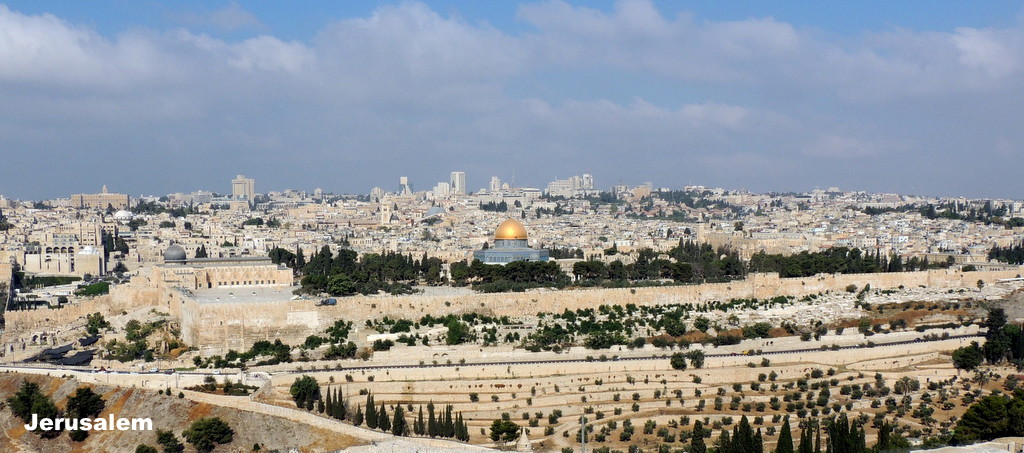 In my last two posts, I have discussed two reasons why I study Biblical geography. For review, they were:
Reason #1: I study Biblical geography to better understand God's people.
Reason #2: I study Biblical geography to better understand God's Word.
In my last two posts, I have discussed two reasons why I study Biblical geography. For review, they were:
Reason #1: I study Biblical geography to better understand God's people.
Reason #2: I study Biblical geography to better understand God's Word.
Today, I'm going to discuss the final reason, which is:
Reason #3: I study Biblical geography to better understand God.
Imagine yourself standing on the Mount of Olives. Most likely, you see yourself spending most of your time staring at the huge Temple Mount area as you slowly locate different Biblical sites.
Now, imagine that King David is standing next to you. You could ask him, "Isn't that beautiful?" He would answer "yes". But, then you notice that he is not looking in the same direction as you are. He is looking south of the Temple Mount area.
See, in David's time, the city of Jerusalem sat on a small, 9-acre peninsula of land just south of the current Temple Mount. That is where the ancient Jebusite city was located. It was there due to two reasons. First, with the Gihon Spring, there was a nice water source. Second, with valleys and hills around it, the city was easily defendable.
Jerusalem, during the time of David, was bounded by the Hinnom Valley to the south, the Kidron Valley to the east, and the Central Valley on the west. On the opposite sides of those valleys were hills. Across the Central Valley, the western hill rises to about 2600 feet in elevation. Across the Hinnom Valley, the southern hill rises to about 2500 feet in elevation. Across the Kidron Valley, the Mount of Olives rises to nearly 2700 feet in elevation. The city of Jerusalem sits at approximately 2400 feet in elevation.
Why did I tell you all of this? I told you all of this so that you would understand one single verse. It reads:
As the mountains surround Jerusalem, so the Lord surrounds his people, from this time forth and forevermore. - Psalms 125:2
Isn't that beautiful?
This psalm was written at a time in which the entire city of Jerusalem sat on this small piece of land and it is surrounded by hills that are all higher than the city itself. The writer of this psalm is expecting us to fully understand these geographical features so that we can completely appreciate the point that is being made.
And in doing so, we can better understand God.
Why do I study Biblical Geography? Three reasons: 1) I study Biblical geography to better understand God's people. 2) I study Biblical geography to better understand God's Word. 3) I study Biblical geography to better understand God.
